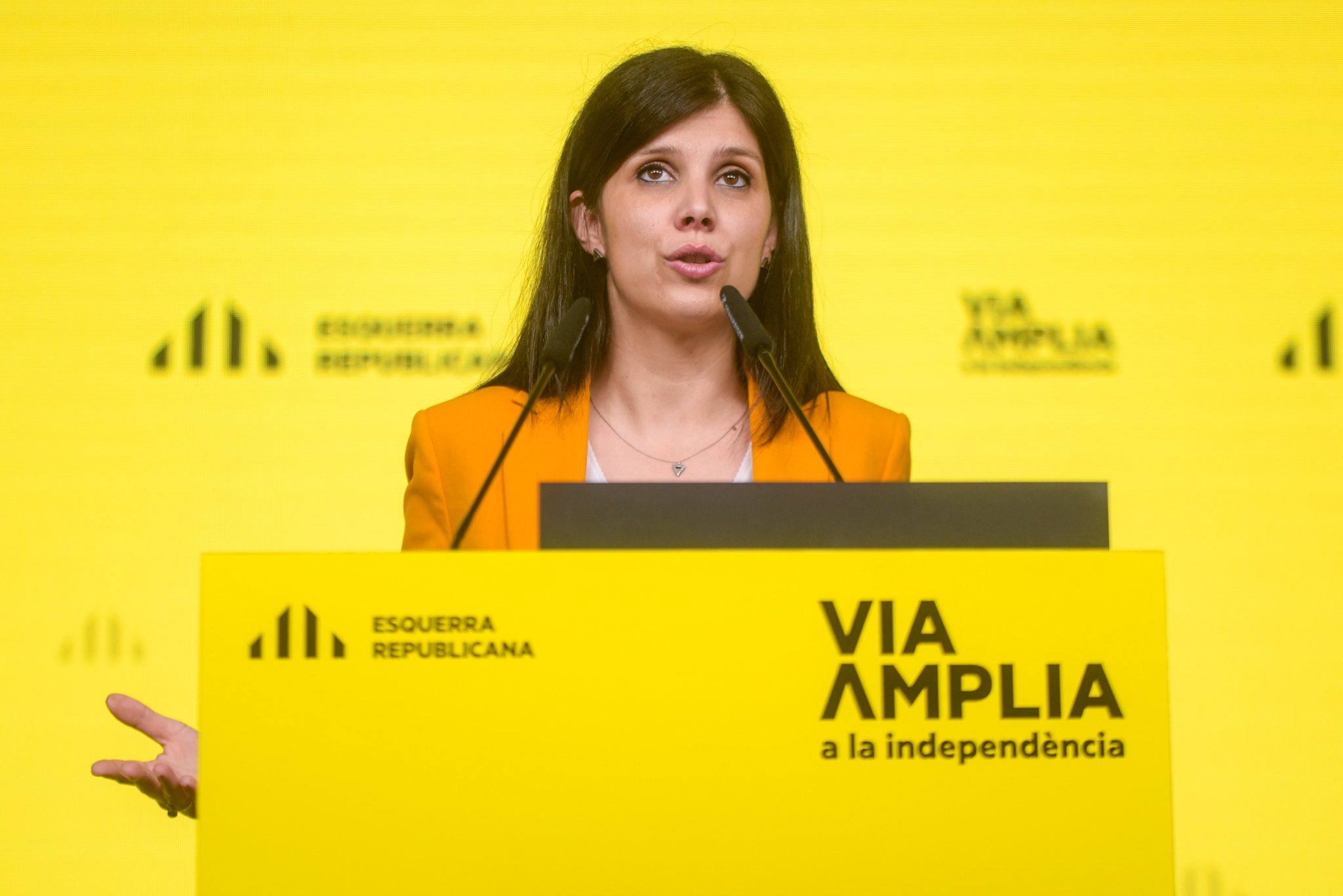The increasingly real possibility that Pedro Sánchez will grant a partial pardon to the Catalan pro-independence prisoners has been the focal point of Spanish politics for a few days now. In Catalonia, on the other hand, the Republican Left (ERC) is striving to point the spotlight elsewhere. "Pardons are not the solution. An amnesty is needed." This was stated by the party's deputy spokesperson and general secretary, Marta Vilalta, who asked the Spanish government to expedite the setting of a date and time to reconvene the dialogue table, separately from the debate on the pardons. Moreover, ERC now asserts that as part of the Catalan delegation, they will try to ensure that their leader, Oriol Junqueras, takes part. "It's undeniable that we'd really like him to be able to be there, obviously."
The Republican argument is that there is a "general judicial case against the independence movement that affects almost 3,000 people" and that a pardon would only serve to alleviate the personal situation of the 9 prisoners, but not those in exile or the many others affected by pending court proceedings. Therefore, as expressed a few days ago by the new Catalan president, Pere Aragonès, the party will not oppose the commutation of the sentence, but will continue to fight to convince the PSOE-Podemos executive that the solution is a general amnesty and the ability for Catalonia to exercise its right to self-determination.
"Before summer"
With this idea in mind, today ERC avoided going into details on the pardons, or discussing whether it would be acceptable for them to be partial. They also shy away from positioning themselves in relation to the sedition law reform proposal, which the Comuns are proposing, to mitigate the sentence associated with this crime. This is a measure that would have to be passed in Congress and, therefore, ERC, Junts and the CUP, will have a voice and a vote. In this regard, they admit that they want to "see the small print", but that, in any case, what would be appropriate is to "repeal the crime". "We don't believe that the reform of the crime of sedition is the solution, either, because that doesn't end the repression and judicialization," Vilalta concluded.
As a starting position, ERC is putting all its eggs in the basket of dialogue with the state and is thus pressuring Pedro Sánchez to give them a date and time. They demand that the negotiation between governments to resolve the conflict be resumed regardless of the debate on the pardons. "We can't let any more time pass. It's time." This is the position of ERC, which considers that the Catalan side is already "fully ready to be able to resume dialogue". The sooner the better, they say, and if possible, "before summer."
Last week, the new Catalan presidency minister, Laura Vilagrà, stated that the Catalan government - or at least the ERC part of it - had detected a turn towards "statesmanship" in the Spanish executive, aimed at resolving the conflict with Catalonia. Asked about the origin of this perception, Vilalta emphasized that "the PSOE-Podemos government has acknowledged that there is a political conflict", she hoped that "they would remain in that position" and she called for the politicians to "get to work", "to resume negotiations where they froze more than a year ago. Specifically, she called on the Spanish government to come to the next meeting with an alternative proposal to independence.
In the main image, Vilalta at the ERC press conference. / Marc Puig

